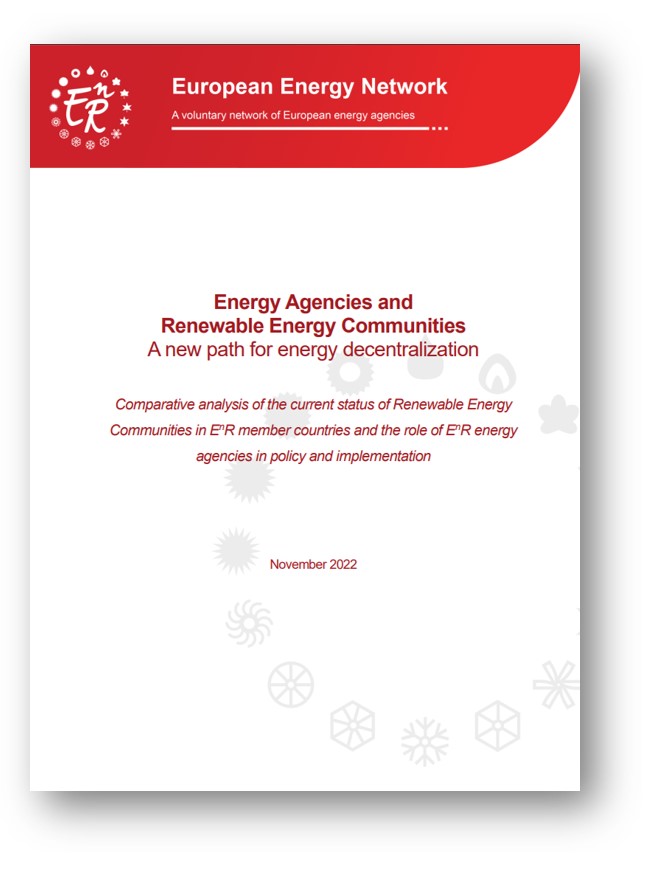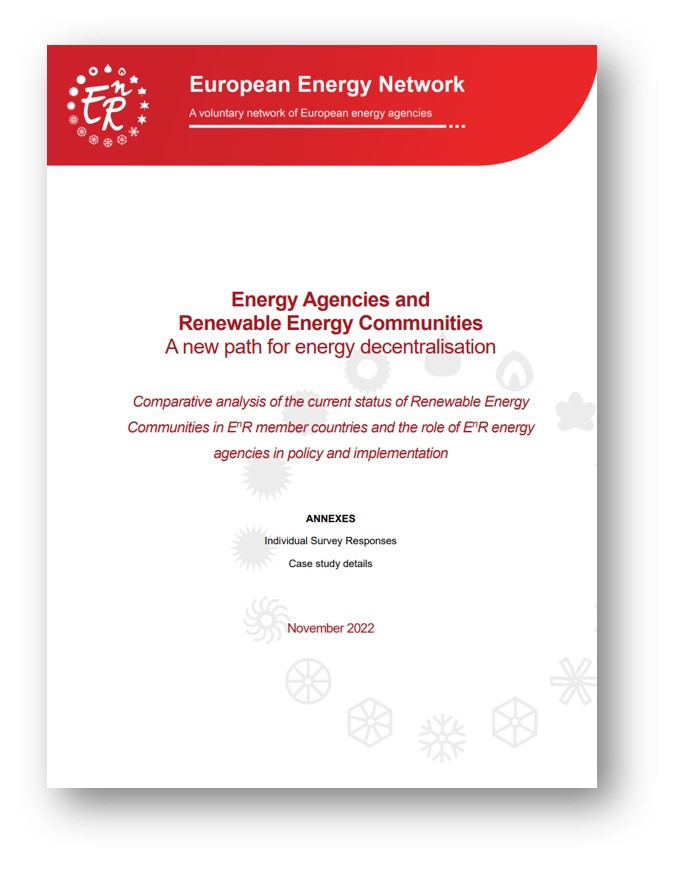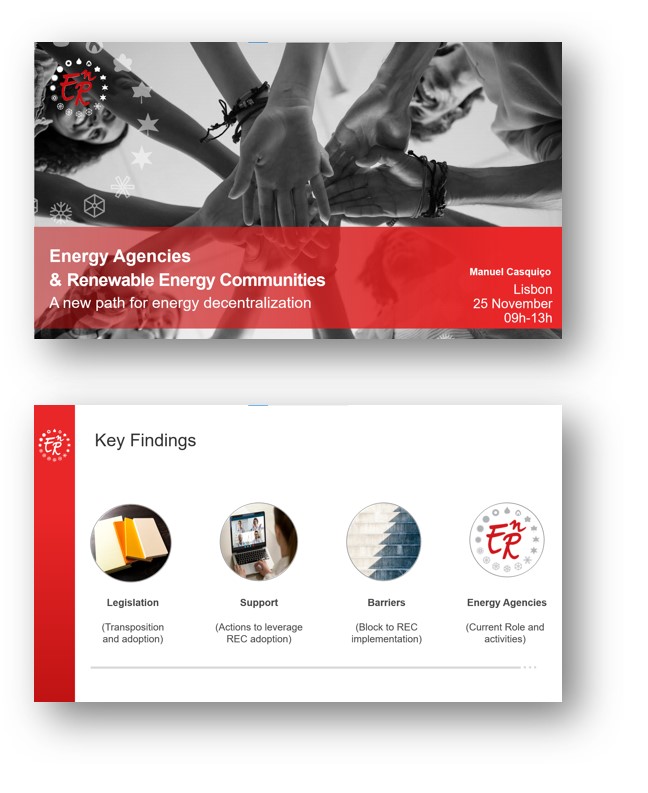The new geopolitical and energy market realities require a drastic acceleration towards clean energy in which Renewable Energy Communities can provide an important contribution, with environmental, social and economic benefits. In order to foster and mainstream Renewable Energy Communities as an instrument of the decarbonisation and energy independence plans, EnR Agencies can take on a more prominent role, given their unique position in the energy sector, connecting the different stakeholders at a technical and political level.
In the present study EnR agencies detail the current status of implementation, the existing legislation and regulation, and identify facilitating instruments and barriers that still hinder deployment of REC. A sample of 36 case studies of existing or planned Renewable Energy Communities is also analysed for complementary information on the current status of the different countries and the role EnR Agencies already assume and can potentially take on in the future.
Taking this information into account, EnR agencies identify possible solutions to tackle the identified barriers and recommend a set of actions that can be pursued in order to leverage EnR agencies’ unique position to increase the adoption of REC as a tool to achieve environmental, social and economic targets in the historical moment we are witnessing.
The study was presented at a dedicated event, on November 25th, in a hybrid event Lisbon, where the European Energy Network gathered over 320 registered participants. Full information on the seminar, speakers and presentations can be obtained here.
Click on the images below to see the FULL STUDY, ANNEXES and PRESENTATION.



